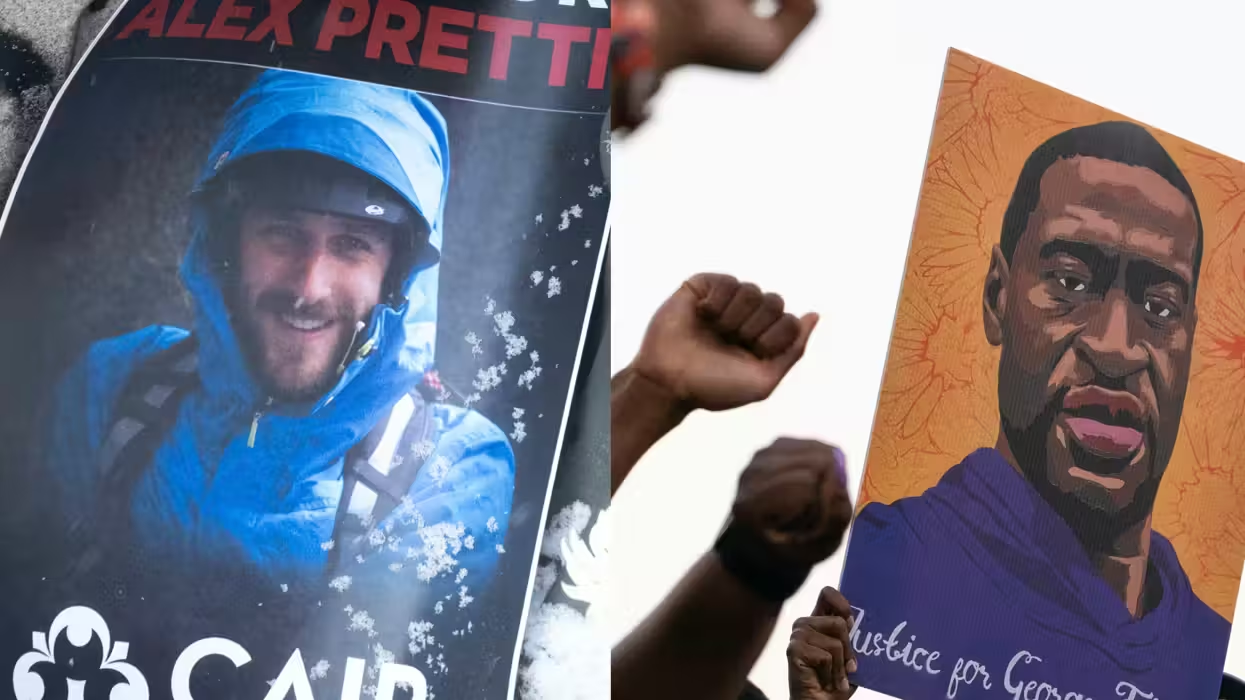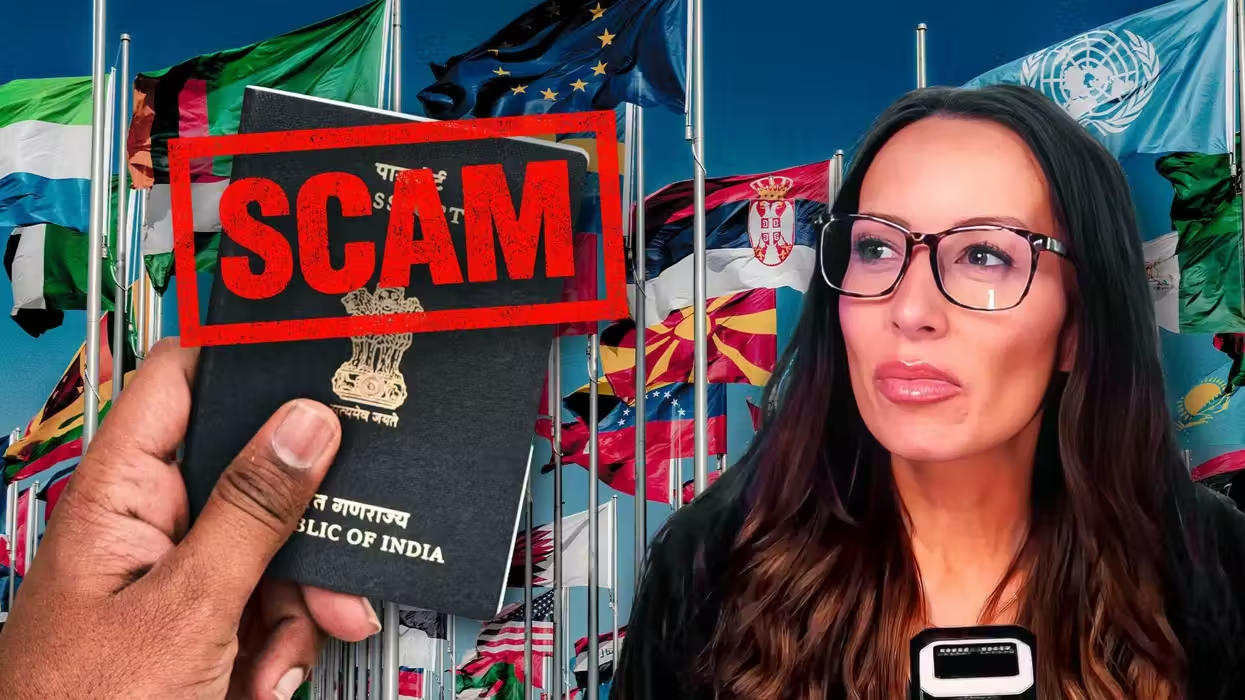Candace Owens' Blexit movement, which seeks to convince black people to leave the Democratic Party and become Republicans, fails to resonate deeply with the black community it wants to attract, and fails to represent well the conservative ideology it espouses.
Despite its stated goal of breaking down the stereotype that black people have to be Democrats and seeking to convert people, Blexit ends up insulting its target audience and neglecting to highlight specific reasons why a black Democrat should join the Republican Party.
Instead, speakers at the Blexit Dallas conference mock and demonize those who hold opposing political beliefs, resulting in a message that is only appealing to those who already agree with it, and attracting a crowd that is representative of the current Republican Party: mostly white.
White people are, of course, welcome at any event promoting the uplifting of the black community. It is not the presence of white people that was troubling to me, but the relative absence of black people. If Blexit's goal is winning black people to the conservative cause, it appears to be missing the mark.
Blexit presents the style of rhetoric that portrays America as a clear-cut battleground between reasonable, logical Republicans and ignorant, manipulative, morally-bankrupt Democrats. It's the way someone might view the country if they only watched cable news and never actually spoke to anyone from another political party.
Volunteers at the event posted signs on the walls and placed them in the seats for audience members. "Robert Francis O'Rourke is not Hispanic." "Liberals can't bully me." "Joe Biden's mentor was in the KKK." Blexit might be more accurately described as an anti-Democratic movement than as a pro-Republican one. It's Donald Trump's "What the hell do you have to lose" quote expanded into a nationwide conference.
This polarized perspective doesn't allow for or empathize with the possibility of well-meaning Democrats, which is a problem when you're trying to win people who.... are currently Democrats. Maybe there are people who change their minds when the opening gambit in a debate is a bevy of insults, but they can't be all that common.
This doesn't seem to matter to the people who put Blexit together. It doesn't seek to engage in civil dialogue with ideological opponents. There's no time for that, when liberals are trying to destroy America.
What is the goal of Blexit? Not the stated goal on the website, but the real goal, as exhibited by public words and actions? That was the question I had on my mind as I prepared to attend Blexit Dallas. I hoped to experience a movement fueled by a desire to engage political debate and black culture in a fresh and positive way, with the goal of showing people the value of conservatism.
Instead, I saw more vitriol. More antagonism. More division. And an ideology that tells black people they should leave the Democratic Party and become Republicans, and that they should break free of viewing themselves as helpless victims of racism. But joining Blexit just means trading the chains black victimhood for those of conservative victimhood. Several of the event's speakers spent a significant amount of time decrying how severely they've been opposed for being conservative.
In Blexit, it's okay to say that you're a victim of systemic discrimination, as long as you're not saying it's because of race. It has to be discrimination by the mainstream media or by higher education or by Hollywood against conservatism.
"For the last decade, and increasingly over the last two years our media has been trying to inspire a race war," the event description reads. But Blexit doesn't seek peace. It just seeks a war on different terms. It seeks to mobilize black people, calling to abandon race-based struggles in favor of a war against liberal narratives in mainstream media. Getting people to change teams isn't the same thing as trying to create unity.
"I think Candace Owens is our Martin Luther King," said Blexit Dallas speaker Rogan O'Handley. Inspiring as Owens might be to some, she and Dr. King chose vastly different methods to pursue their respective "revolutions."
King's perspective on how to treat one's enemies, which he derives directly from the words of Jesus Christ as recorded in the gospel of Matthew, was not reflected at Blexit Dallas. King's ideas about how to transform or win over an opponent would have seemed out of place at the South Side Ballroom in downtown Dallas on that Sunday evening.
King spoke on this topic in a November 1957 sermon (emphasis mine):
Now there is a final reason I think that Jesus says, "Love your enemies." It is this: that love has within it a redemptive power. And there is a power there that eventually transforms individuals. That's why Jesus says, "Love your enemies." Because if you hate your enemies, you have no way to redeem and to transform your enemies. But if you love your enemies, you will discover that at the very root of love is the power of redemption.
You just keep loving people and keep loving them, even though they're mistreating you. Here's the person who is a neighbor, and this person is doing something wrong to you and all of that. Just keep being friendly to that person. Keep loving them. Don't do anything to embarrass them. Just keep loving them, and they can't stand it too long. Oh, they react in many ways in the beginning. They react with bitterness because they're mad because you love them like that. They react with guilt feelings, and sometimes they'll hate you a little more at that transition period, but just keep loving them. And by the power of your love they will break down under the load.
That's love, you see. It is redemptive, and this is why Jesus says love. There's something about love that builds up and is creative. There is something about hate that tears down and is destructive.
I do not claim to know how Candace Owens or anyone else associated with Blexit conducts him or herself in daily life, in daily interactions. I make no moral judgment against individuals who believe in the Blexit cause. I do not even profess total innocence of having participated in or contributed to toxic or divisive political rhetoric with words I have written or spoken.
But I will say that any movement that is truly concerned with changing people's hearts and minds from what it believes is wrong to what it believes is right must be defined by love, compassion, empathy, and kindness. Especially for those with whom there is the most disagreement. Especially for those from whom the strongest opposition comes.
A black Democrat who wandered into the Blexit conference out of curiosity would not have felt welcomed or cared for. They would have felt insulted and attacked. People are rarely convinced of anything by being told how stupid they are for how they think and what they believe.
Owens is a young activist, and Blexit is a young movement. Both could, and likely will, evolve over time as they grow in age and stature. And I hope they do. I believe there is value to be found in the content of the movement, even with the presentation currently leaving something to be desired.
Black people don't have to be Democrats. Many black people do inherit an affiliation with the Democratic Party without much critical thought because of their race. And there needs to be more dialogue about why that is and how to respond to it within the black community.
But that conversation can't only happen with conservatives among themselves. We can't just huddle up in conferences and rallies to discuss how bad the other side is. That other side has to be reached out to and welcomed with love and good faith, regardless of whether that love is reciprocated.







